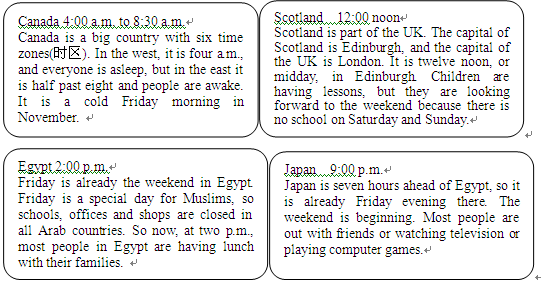题目内容
At last one of them said, “What’s the use of doing this foolish work? We can ___ fill the basket.” ____ man answered, “That is none of your business.” The first man said. “You may do as you like, but I am not going to work at ____ so foolishly.” He ____ his bucket(圆桶) and went away. The other man said no word, and kept on carrying ____. At last the well was almost ____.
As he poured the last bucket of water into the basket, he saw a bright thing in it. He ______. It was a beautiful gold ring. Just then the king came. ____ he saw the ring, he knew that he had found the kind of man he wanted. He told him to keep the ring for himself. “You ___ so well in this little thing,” he said, “ What now I know I can believe you with many things.”
小题1:| A.finished | B.did | C.began | D.had |
小题2:| A.never | B.also | C.hard | D.always |
小题3:| A.The other | B.Another | C.One | D.A second |
小题4:| A.anything | B.something | C.nothing | D.everything |
小题5:| A.picked up | B.put away | C.took away | D.threw away |
小题6:| A.water | B.basket | C.well | D.work |
小题7:| A.full | B.empty | C.filled | D.clean |
小题8:| A.put it up | B.looked it up | C.picked it up | D.gave it up |
小题9:| A.While | B.As soon as | C.Before | D.Since |
小题10:| A.have done | B.will do | C.do | D.are doing |
小题1:C
小题2:A
小题3:A
小题4:A
小题5:D
小题6:A
小题7:B
小题8:C
小题9:B
小题10:A
试题分析:这篇文章主要讲述了国王给了两个人每人一个篮子让他们往里面掏井里的水,第一个人总是抱怨认为这是很愚蠢的事情,而另一个人很认真的去做,最后把水掏完后发现井里有一枚戒指,最后国王说他就是他要找的那个人。
小题1:考查动词及语境的理解。根据句意从前国王给两个年轻的小伙子每人一个篮子,让他们向篮子里装满水,当他们开始工作后,国王离开了,故选C小题2:考查副词及语境的理解。A. never绝不,从不;B. also 也;C. hard 难的;D. always总是;根据句意最后他们当中的一个人说做这样的傻工作有什么用?我们绝不会把这个篮子装满。根据题意故选A小题3:考查代词及语境的理解。A. The other表示两者中的另一个; B. Another表示不定数目中的另一个 ;C. One表示一个;D. A second表示再一,又一。句意:另一个人说,那不管你的事。结合题意故选A小题4:考查不定代词及语境的理解。根据文意可知,第一个人说你可以按你喜欢的去做,但是我不会做这样傻地事情。A. anything任何事情;B. something某些事情;C. nothing 没有任何事情;D. everything一切的事情;根据意义故选A.小题5:考查动词短语短语及语境的理解。A. picked up捡起,拾起; B. put away把……收起来;C. took away拿走,带走 D. threw away扔掉;句意;他扔掉了圆筒就离开了。结合以上内容,应选D.小题6:考查名词及语境的理解。A. water水;B. basket篮子;C. well名词井; D. work工作;此处:另一个人一句话也没说,继续搬。扛水,根据题意故选A小题7:考查形容词及语境的理解。A. full 满的;B.empty空的;C. filled装满的;D. clean干净的;根据句意最后这井几乎空了,故应选B。
小题8:考查动词短语及语境的理解。A. put it up 张贴;B. looked it up查字典;C. picked it up 捡起。拾起;D. gave it up放弃;该句当他要最后一桶水的时候,他看到一个明亮的东西,他把它捡起来,故选C小题9:考查连词及语境的理解。A. While当……时候 B. As soon as一…….就 C. Before 在……之前D. Since自从句意:这是国王过来了,当他一看到这枚戒指,他就知道这个男人就是他要找的人。根据句意故选B小题10:考查感叹句及语境的理解。根据题意可知用完成时,have done的结构。根据句意:国王说在这小事上你是做的如此的好,可知选A.
练习册系列答案
 名校课堂系列答案
名校课堂系列答案
相关题目

